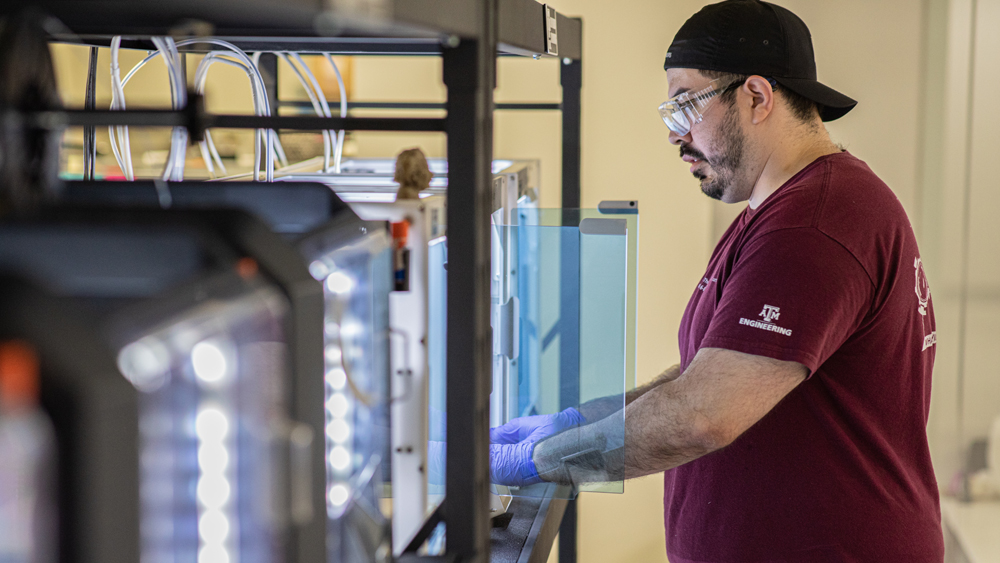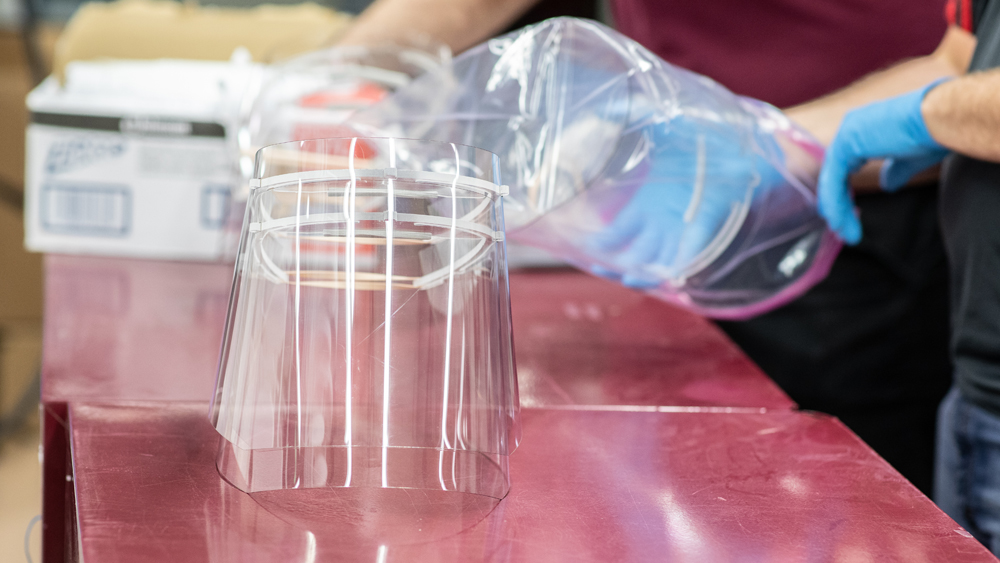
Major hospitals in the Houston area reached out to Texas A&M University and the Texas A&M Engineering Experiment Station (TEES) to determine if researchers and staff could use their rapid manufacturing expertise to assist with the shortage of medical devices and personal protective equipment (PPE) as the nation responds to the unprecedented emergency that is the COVID-19 pandemic.
“Texas A&M Engineering has 21,000 students, but now that they’re not on campus, we’ve converted some of our spaces, like the SuSu and Mark A. Fischer ’72 Engineering Design Center, into manufacturing facilities,” said Dr. Yossef Elabd, associate dean for research and chemical engineering professor. Elabd, who is leading Texas A&M’s COVID-19 rapid response team, added, “We now have a system in place to produce face shields and diffusers for metered dose inhalers, and we’re continually producing PPE every day and delivering to hospitals.”
As an America Makes satellite center, TEES boasts one of the largest concentrations of core manufacturing subject matter experts in the country. The knowledge base is multidisciplinary, comprised of representatives from various colleges within Texas A&M and The Texas A&M University System.
“We have advanced manufacturing and additive manufacturing capabilities to support us in our learning objectives and to help us in productivity and in reducing costs,” said Rob Gorham, executive director of manufacturing initiatives at TEES.
Gorham elaborated that it is Texas A&M’s and TEES' unique approach placing service above self that sets them apart from their peers and enables them to rapidly deploy solutions across the state and nation in order to solve some of the world’s hardest problems.

“Manufacturing anything requires diversity in approach,” Gorham continued. “We have to focus not just on making a functional solution, but a functional solution that works and is safe to use by the many people depending on our answers. Texas A&M, as a tier one university, has all of that in-house.”
Ordinarily, a university campus, where the TEES headquarters is located, would not be manufacturing medical devices and delivering them directly to hospitals, but these unusual times have called for a new way of doing things. Internal staff and legal teams are executing agreements in a matter of hours or days—instead of months—in order to meet urgent demands from medical professionals.
“This situation highlighted a lot of discussions that we probably were not having between physicians at hospitals and a lot of engineers at Texas A&M,” said Elabd. “Once the nation overcomes COVID-19, I look forward to new directions for research informed by our recently developed working relationship with Texas hospitals.”